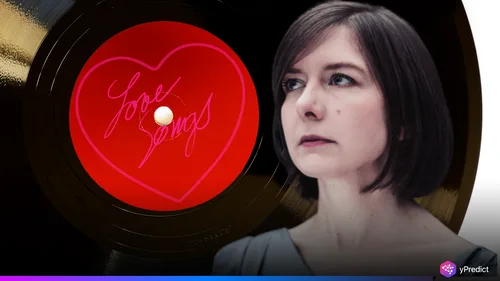
Emily Portman, an award-winning folk singer from Sheffield, recently faced a shocking discovery. Fans began congratulating her on a new release, praising her for carrying English folk music forward. The problem was simple yet disturbing, Portman had not released any new albums.
When she followed a fan’s link, she found an album titled Orca published under her name across Spotify, iTunes, and other streaming services. The ten tracks carried names strikingly similar to what she might use, such as Sprig of Thyme and Silent Hearth. The voice imitated her singing style, though slightly off, and the instrumentation mirrored her sound. It was the work of artificial intelligence, packaged and sold as her creation.
For Portman, the experience was both “creepy” and deeply unsettling. It exposed the growing problem of AI fake albums appearing under real artists’ names, often fooling unsuspecting listeners.
How AI Fake Albums Are Tricking Fans
AI-generated music has been spreading rapidly online, usually under invented names or mimicking global stars. But Portman’s case highlighted a new wave of deception—fake albums appearing directly on legitimate artists’ profiles.
The imitation was strong enough to convince casual listeners, but Portman found it hollow. She noted the music sounded “vacuous and pristine,” missing the imperfections and emotional depth of human creativity. “I’ll never be able to sing that perfectly in tune,” she said, emphasizing that authenticity matters more than perfection.
Only days later, another so-called album appeared on her profile—this time a collection of what she called “20 tracks of instrumental drivel.” She swiftly filed copyright complaints, but platforms were slow to act. Some removed the content quickly, but Spotify took three weeks. She still has not regained full control of her artist profile.
Independent Musicians Left Exposed
The incident left Portman convinced that independent musicians are easier targets than global superstars. Lesser-known artists lack the legal support, label power, and immediate platform access that protect big names. As a result, fake releases slip through the cracks more easily, leaving smaller artists to fight their own battles.
A New York-based artist, Josh Kaufman – a contributor to Taylor Swift’s Folklore – had a similar experience. Fans contacted Kaufman about a new song Someone Who’s Love Me, which was an AI-constructed mess of poorly produced music with broken lyrics. “This is the fingerprint of our soul,” Kaufman said, further conveying that music is such an intimate aspect of artists’ lives.
The Role of Streaming Platforms and Distributors
Every day, nearly 99,000 songs are uploaded to streaming platforms, according to industry analysts. Most go through distributors, where artists provide their details. If fraudulent information is entered, music can wrongly appear under established names.
Streaming services like Spotify claim they act quickly when flagged, but Portman and others argue that response times are inconsistent. In many cases, royalties from these fake uploads go directly to the imposters. While the sums are small per track, the scale of uploads means fraudsters hope to generate income across many fake releases.
Experts warn that streaming fraud will become more sophisticated as AI evolves. Independent artists, often without teams or labels, remain the most vulnerable to such schemes.
A Wider Industry Challenge
The problem extends beyond living artists. Even deceased musicians like Blaze Foley have had AI-generated “new songs” uploaded under their verified profiles. For Craig McDonald, who runs Foley’s record label, this not only disrespects Foley’s legacy but also risks misleading new listeners about what authentic music sounds like.
Media analysts argue that fraudsters exploit the algorithm-driven nature of streaming. Listeners often consume music passively, allowing fake tracks to slip in without much scrutiny. Platforms themselves are beginning to use AI to combat the problem, but it remains a race between creators of AI fake albums and detection systems.
Real Creativity Still Matters
For Emily Portman, the ordeal reinforced her faith in the power of human creativity. She is now recording her first real solo album in a decade. Unlike AI-generated imitations, this project requires time, investment, and collaboration with real musicians. She estimates costs of at least £10,000, but she believes the result will resonate far more deeply with listeners.
“I’m really looking forward to bringing some real music into the world,” she said. Her message is clear: while AI can mimic sound, it cannot replicate authenticity, emotion, or the creative spirit that fuels genuine artistry.






